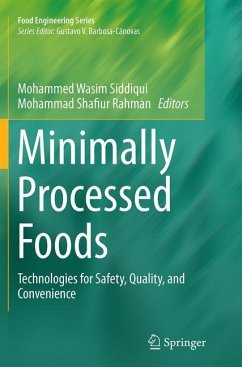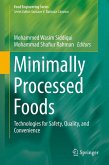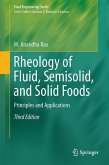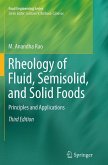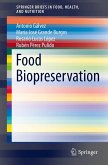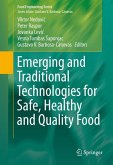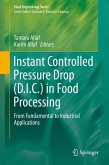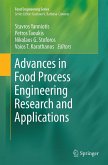The safety and efficacy of minimal food processing depends on the use of novel preservation technologies. This book first examines what is meant by minimally processed foods, including fresh-cut, cooked-chilled, and part-baked products. Next explored are the technologies or methods to produce quality products in terms of safety and nutrition, including: edible coating, natural preservatives (i.e., antimicrobial, flavour enhancer, anti-browning), advanced packaging (active, antimicrobial, and modified or controlled atmosphere), and selected non-thermal techniques (high pressure, pulsed electric field, ultrasound, light). Preservation of food is crucial to achieving a secure and safe global food supply with the desired sensory quality. In addition, the increasing consumer demand for safe, ready-to-serve, ready-to-eat-and-cook products with minimal chemical preservatives has raised expectations. However, foods deemed minimally processed, such as fresh-cut fruits and vegetables,cooked-chilled, and half-baked foods, are delicate products that need special care in preparation, processing, storage, and handling. As a result, new technologies to develop minimally processed foods have aggressively advanced. Minimally Processed Foods: Technologies for Safety, Quality, and Convenience explores both the definition of minimally processed foods and the methods and technologies used to achieve the safety and nutritional value consumers demand.
About the Editors
Mohammed Wasim Siddiqui, Bihar Agricultural University, Sabour, Bhagalpur, India
Mohammad Shafiur Rahman, Sultan Qaboos University, Al-khod, Oman
About the Editors
Mohammed Wasim Siddiqui, Bihar Agricultural University, Sabour, Bhagalpur, India
Mohammad Shafiur Rahman, Sultan Qaboos University, Al-khod, Oman

